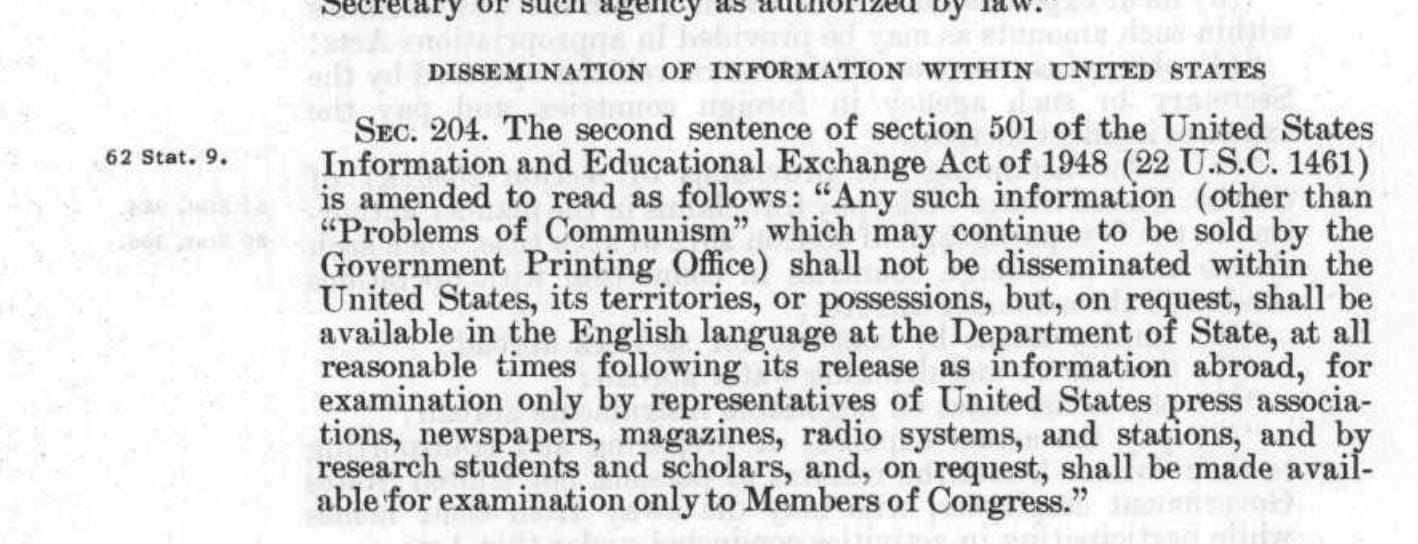Can you imagine a government that did not attempt to coerce its constituents?
The temptation of propaganda
Hello Lenten time. Fasting in the desert and enduring temptations.
Every government is tempted to use propaganda on its constituents. Why not, really? They pay you to govern, and thus it must mean that you are welcome to use those payments to proselytize. That’s what a church would do, wouldn’t it? Thus, we have millennia of precedent for the practice.
Aiming to coerce creates petty demons.
Propaganda is coercion, writ large and without proper FTC disclosure. (ha)
In the famous book by Edward Bernays, published in 1928, we see stark evidence of this thinking, followed by the realpolitik discussion of how to enact it.
Some quotes to make the point:
“The dogma that the voice of the people is the voice of God tends to make elected persons the will-less servants of their constituents… No serious sociologist any longer believes that the voice of the people expresses any divine or specially wise and lofty idea.”
“The public relations counsel [i.e. propaganda specialist - ed.] is necessary to social work. And since social service, by its very nature, can continue only by means of the voluntary support of the wealthy, it is obliged to use propaganda continually.”
Edward Bernays, Propaganda, 1928
Timeline of the Smith Mundt Act
The Smith Mundt act is ostensibly about “public diplomacy” - read “propaganda intended for foreigners.” It was enacted in a time period where the US was very concerned about countering communist propaganda.
1948
After World War 2, when the US got involved with foreign rebuilding [ahem: meddling] the Smith Mundt Act of 1948 was made into law. The stated purpose of the act was to formalize and regulate propaganda used against non-US citizens.
Download the original 1948 version (9 pages):
The 1948 law did not specifically prohibit domestic distribution of propaganda.
1972
An amendment added in 1972 fixed this loophole, but created another issue.
1985
In the 1980s, this prohibition was further strengthened, by banning domestic activities of USIA.
This resulted in a court decision that information and propaganda produced under this act was not available through FOIA requests. (Essential Information, Inc. v. United States Information Agency )
2012
The Smith Mundt Modernization Act made it permissible to disseminate propaganda materials in the USA. The cover is that these materials should not have been prepared for a US audience. The justification is that the “firewall” is no longer realistic in a digital world.
Of course, the best defense against propaganda is the ability to recognize it. There is a clear continuum between informational messaging and actual coercion. Can you imagine a world where the government had ZERO budget for messaging, and just had to publish everything it was doing without commentary or synopsis?
With informational messaging, the thing to ask is “What information is being omitted? Who benefits?”
With coercion, the question becomes “Why are they playing on my emotions? Who benefits?”
Just to clarify, there are countless “domestic propaganda campaigns” run by the US government. For instance, USDA Nutritional Guidelines, literally recommends against full fat dairy, when every modern person I know recognizes that a healthy weight is more easily achieved by eating fat. Who benefits?
Note what USAID had to say about itself in a 2009 conference prior to the “modernization.” It claimed it did not know whether the act covered their activities.











